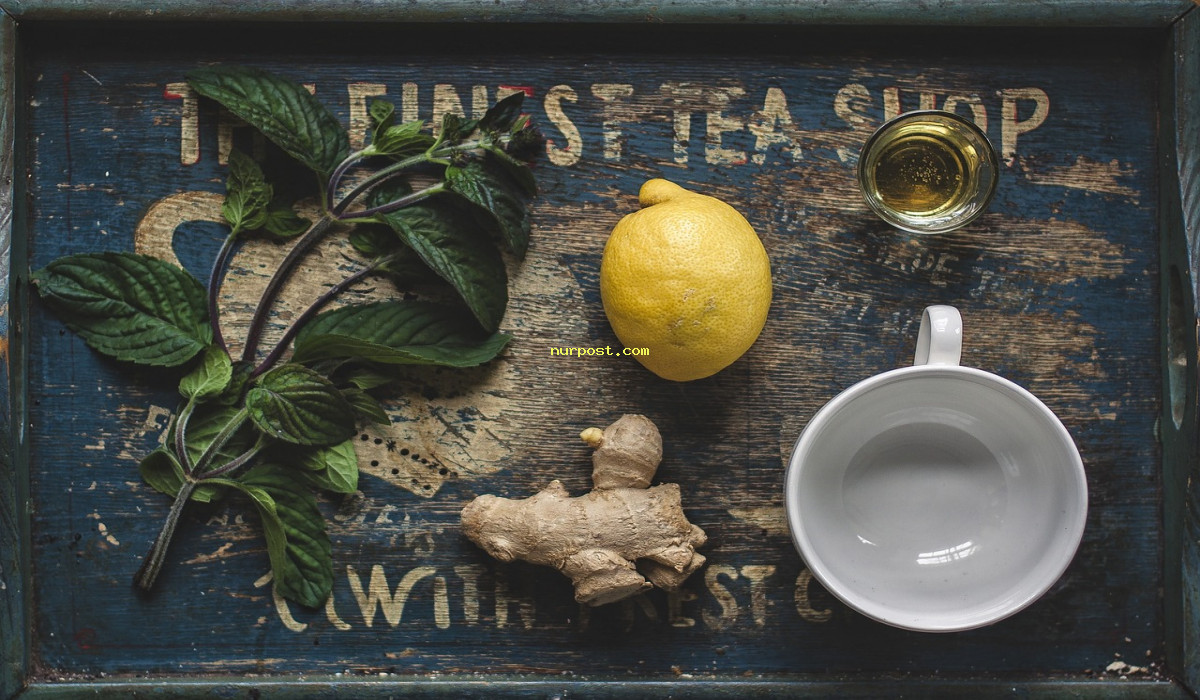Cultivating Gratitude: Unlock Happiness and Wellbeing Learn how becoming more grateful leads to improved relationships, better physical and mental health, and overall satisfaction with life. Discover the simple steps anyone can take to make gratitude a part of their life.
Cultivating Gratitude: Unlock Happiness and Wellbeing Find the Best Result
Cultivating Gratitude: A Key to a Happy and Healthy Life
It’s no secret that developing and maintaining a positive attitude is a powerful piece of the puzzle when it comes to creating overall happiness and wellbeing in life. Gratitude is a unique emotion that can be nurtured and developed, providing numerous well-known benefits on mental, emotional, and physical health. Despite the many benefits of gratitude, many of us struggle to remember to give thanks and appreciate the simple things in life.
Benefits of Cultivating Gratitude
From improved mental health and symptom relief to increased self-confidence and better physical health, there are countless documented benefits of cultivating an attitude of gratitude.
It’s Mental Health Benefits
Studies have shown that a deep appreciation and feeling of thankfulness for what one has in life can result in improved mental health and greater wellbeing overall. Whenever we already have something we desire or need, it automatically brings a sense of relief to our lives. Acknowledging and expressing gratitude for these gifts, whether they be big or small, can bring about an even greater feeling of contentment and satisfaction by also allowing us to see how lucky we are and how others have helped us to reach our goals

.
It’s Enhance Sleep Quality
Research has also suggested a strong correlation between gratitude practices, improved sleep quality, and reduced insomnia. Creating a daily ritual of thankfulness and appreciation has been proven to reduce stress and help people to unwind at the end of the day. Allowing the body and mind to settle into a peaceful state prior to sleep is key to getting the rest we need.
It Reduces Stress and Anxiety
Too often we focus on what we don’t have or what we are lacking in our lives. Focusing on scarcity and lack can lead to feelings of stress, anxiety, and dissatisfaction. Learning to appreciate what you do have brings a sense of contentment and joyment. Appreciating the “good stuff” in life can reduce tension and allow us to experience more joy and harmony.
It boosts self-esteem
Expressing thankfulness for our accomplishments, all that we have achieved, and our talents can boost self-confidence and self-esteem. It can also lead to greater feelings of worth and ability to reach our potential. Whenever we practice gratitude, we give ourselves permission to feel good about ourselves and our accomplishments.
It’s Improving Physical Health
Not only can gratitude practices help improve mental health, but research suggests that it can also help people improve their physical health. Studies have shown that gratitude practices can help reduce inflammation in the body and increase overall wellbeing.
It’s Enhances Relationships
When we recognize what we have and are thankful for it, we often begin to have a different outlook on relationships in our lives. Expressing appreciation and gratitude for those around us can lead to stronger relationships and feelings of closeness and more connection. The feeling of appreciation can be mutually beneficial when shared with others.
Practicing Gratitude
Creating a habit of gratitude is easier said than done, and it requires commitment to shift our thinking and focus on the good in life. Here are some ideas for practices to help cultivate an attitude of gratitude in your daily life.
Keep A Gratitude Journal
Designate a journal to record all your positive experiences, no matter how small. Let this be a reflection of all the wonderful things you have to be thankful for. Review this journal daily to increase the feeling of thankfulness and appreciation.
Mindfulness
Practicing mindfulness in daily life is a great way to recognize and appreciate the present moment. Take time each day to be still and focus on your breath, and to acknowledge the present moment without judgement or fear.
Express Gratitude to Others
Showing gratitude to those around us can have a powerful impact. Take the time to appreciate the people in your life—tell them what you are truly thankful for and why. Remember, actions speak louder than words.

Practice Generosity
Generosity is a great way to show gratitude and can take many forms, from giving donations to helping someone in need to simply paying it forward with a kind word. Any act of generosity contributes to the overall feeling of gratitude and appreciation.
Do Random Acts of Kindness
An act of kindness is another great way to practice gratitude. Doing something nice for another person, such as writing a thank you note or leaving a kind comment on a friend’s social media post, demonstrates appreciation and reminds us to be thankful for the good in our lives.
Conclusion
Regardless of how you choose to practice gratitude, it is important to remember that it is a habit that takes intention and commitment. Allowing yourself to be aware of the present moment, and the wonderful things in your life that you can be thankful for, helps to reduce stress and worry and increase joy and wellbeing. Taking the time to foster an attitude of gratitude in your life is an investment that yields countless benefits.
Cultivating Gratitude: Unlock Happiness and Wellbeing Best Solution For You
Discover the Three Keys of Gratitude to Unlock Your Happiest Life!: Jane Ransom at TEDxChennai
Your Video is here .
Cultivating Gratitude: Unlock Happiness and Wellbeing
Gratitude: A Key to a Happy and Healthy Life
Gratitude is a powerful tool to achieve happiness and healthier. Studies have shown that expressing and cultivating gratitude can have a marked on vitality, mental strength and physical well-being. The unique experience of being grateful for both the positive and negative experiences of life is an innate human emotion that can dramatically improve mental, emotional, and spiritual health.
The Benefits of Cultivating Gratitude
Cultivating gratitude has numerous psychological and physical benefits for individuals. One of the key benefits is improved emotional well-being. A sense of gratitude allows people to look beyond their current circumstances and appreciate the positives in life. It also helps to reduce stress and depression, increase resilience to life’s challenges and foster positive relationships with others. Practising gratitude strengthens compassion and appreciation for the world around us.
Creating greater joy and fulfillment
The practice of gratitude helps to create greater joy and fulfillment in our lives. Regularly taking a moment to appreciate the blessings we have can help us to become more mindful and connect with our surroundings. This in turn, can create a sense of peace and contentment. Gratitude also encourages us to focus on the abundance of good in our lives, rather than the lack.
Driving mindful action
Cultivating gratitude encourages us to take actions that are driven by mindfulness. We become more aware of our own thought processes and feelings and are more likely to make decisions that are based on our values and beliefs rather than our basest impulses. This helps us to maintain our integrity and inner peace.
The physical benefits of gratitude
Studies have found that expressing gratitude can also improve physical health. Individuals who express gratitude are more likely to have stronger immunity, lower blood pressure and better sleep quality. Expressing gratitude has also been linked to increased energy levels and a lower risk of developing chronic illnesses.
Tips for cultivating gratitude
Regularly practising gratitude is an effective way to cultivate positive emotions and reap the health benefits associated with having a grateful heart. Here are some tips for building gratitude:

Journaling – Keeping a gratitude journal can be a powerful tool for mindfulness. Dedicate a couple of minutes a day to write down three things that you are grateful for. This will help to build a greater appreciation for the little things in life.
Regular reflection – Make sure to take time out of your day to pause and reflect on the things that you are thankful for. This could be something as simple as taking pleasure in the beauty of nature or savouring a moment of joy.
Express gratitude – Studies have shown that verbalising your gratitude, either through words or a gesture, is an effective way to improve your emotional wellbeing. Taking the time to thank someone for the little things can be meaningful for both parties.
Putting it all together
Cultivating gratitude is a powerful tool for achieving emotional wellbeing and physical health. It helps to bring out the positive aspects of daily life and cultivate meaningful relationships. Practising gratitude has numerous physical benefits, such as improved immunity, lower blood pressure, and better sleep quality. Taking time to appreciate the little things, journaling, reflecting, and expressing gratitude are all effective ways to experience the many benefits of having a grateful heart.
Cultivating Gratitude: Unlock Happiness and Wellbeing

What benefits does cultivating gratitude have?
Cultivating gratitude can lead to numerous benefits including increased happiness and energy, better physical health, improved sleep patterns, and better relationships with others.
How do you cultivate gratitude in your life?
It is important to take the time to count your blessings, notice the moments in which you feel grateful, and practice mindfulness. Through mindfulness, you can become aware of all the good things in your life, and be able to dwell on those instead of worrying about the bad.
What is the importance of gratitude?
Gratitude is important because it improves mental and physical health, reduces stress and anxiety, increases joy and contentment, and helps improve relationships. Furthermore, it helps us recognize and appreciate the good things that come our way instead of dwelling on the negative.
What can you be grateful for?
You can be grateful for your friends, family, health, job, achievements, passions, and passions, and anything else that adds value to your life. Even the small blessings like a cup of coffee or a sunny day can be moments of gratitude in our lives.
How do you express gratitude?
There are many ways to express gratitude including expressing it verbally, through writing, or by performing acts of kindness for others. Being grateful for what you have and expressing that gratitude is a powerful tool to lead a happier life.
Why is gratitude important in relationships?
Gratitude is important in relationships because it helps create strong and meaningful connections with others. When we express our appreciation to our partners, it can make them feel truly valued and enhance our relationship overall.
How do I start being more grateful?
The best way to start being more grateful is by keeping a gratitude journal. Set aside time each day to write down the things you feel grateful for and it will help you become more aware of all the good things in your life.
How do you show gratitude everyday?
You can show gratitude everyday by telling those close to you how much you appreciate them, by writing thank you notes to those who have done something nice for you, by sending a kind message to a friend, or by simply taking a moment to reflect on the good things in your life.
What are the benefits of being thankful?
The benefits of being thankful include increased happiness, improved relationships, better physical and mental health, increased optimism, and improved sleep. Being thankful can also help us stay focused on the positive, and allow us to appreciate and value the good things in our lives.
How can gratitude help us in difficult times?
When faced with difficult times, gratitude can help us focus on the positive aspects within our lives and give us the strength to persevere. Expressing gratitude during hard times can also help us find the courage and motivation to push through and find solutions to our problems.
How does gratitude lead to happiness?
Gratitude leads to happiness as it encourages us to take time every day to appreciate the smaller things in life and to take notice of the moments in which we feel thankful. Shifting our focus to be grateful for the good things in life can help us be happier overall.
